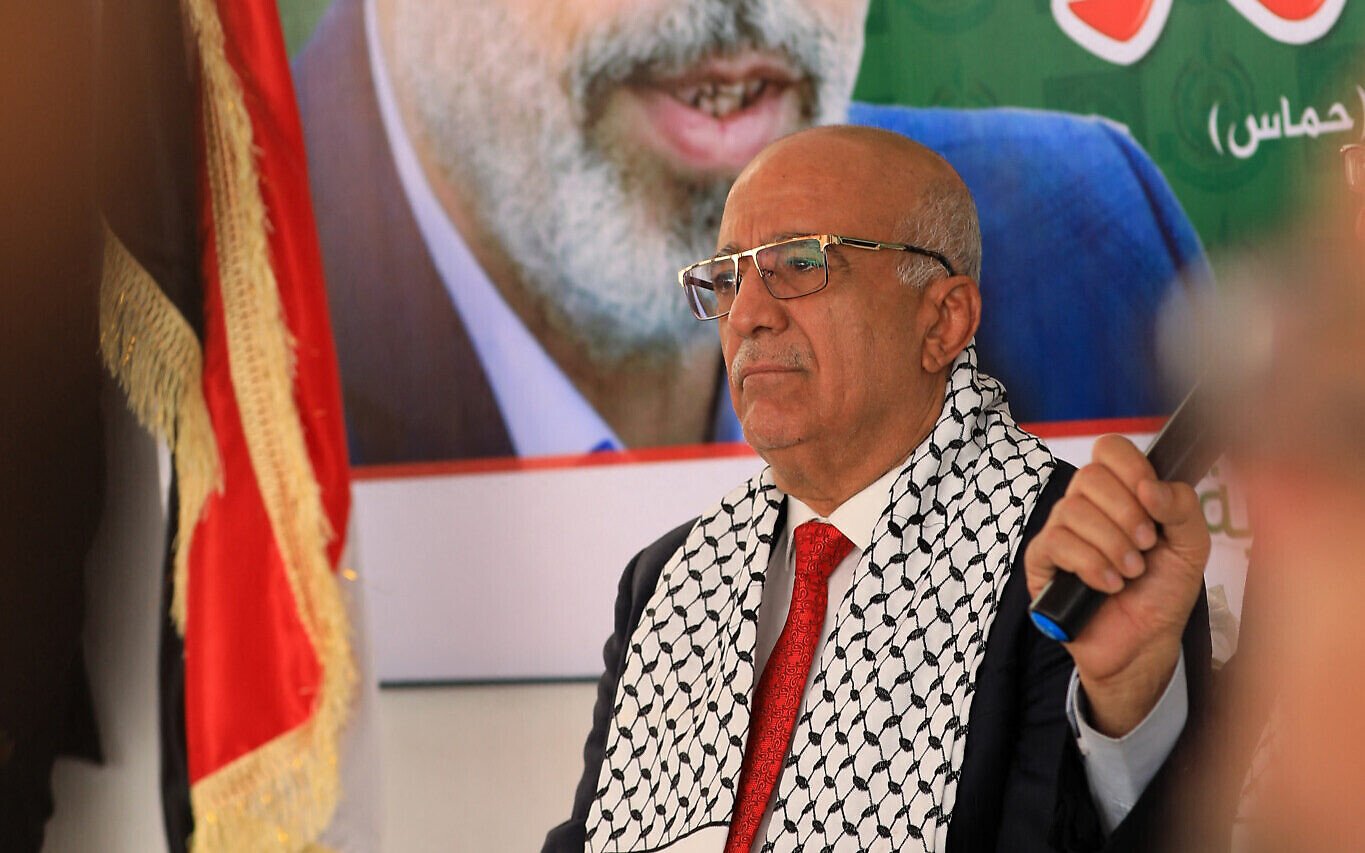The IDF assesses that the entire Houthi cabinet — including the prime minister and 12 other ministers — were likely killed in Thursday’s strikes in Yemen, Channel 12 reported Friday, without citing any sources.
The network said the assessment was not definitive and that the IDF was still working to reach a clearer understanding of the strike’s results.
Yemen’s Al-Jumhuriya channel and the Aden Al-Ghad newspaper reported that Houthi Prime Minister Ahmed al-Rahawi was killed in an Israeli attack on an apartment in the capital Sanaa, with the latter reporting that several of his companions were killed as well.
It appeared from the reports to have been a separate strike from the one that was said target 10 senior Houthi ministers as they gathered in a location outside of the capital to hear a speech by the group’s leader, Abdul Malik al-Houthi.
The IDF on Friday confirmed that the Houthi defense minister and chief of staff were targeted in that attack. As of Friday afternoon, it was still awaiting confirmation of the results.
Channel 12 said the two were en route to the location of the cabinet meeting shortly before the strike and were apparently at the site when it was hit.
The outcome of that attack has yet to be fully determined, although political sources cited Thursday by Channel 13 news claimed that “the direction is positive, it seems the attack succeeded,” and Ynet reported that “there is growing assessment that the entire Houthi military and governmental elite were eliminated in the attack.”
At a situational assessment held Friday on the military’s ongoing operations across the region, IDF Chief of Staff Lt. Gen. Eyal Zamir said, “The Houthis operate as an additional terrorist branch of Iran, continue to attack Israel, and threaten regional and international stability. Our message is clear — there will be no tolerance.”
Israeli intelligence provided real-time details of the gathering, enabling the strike, which was carried out despite heavy air defenses in the area, the IDF said.
As al-Houthi delivered his address, Israel reportedly monitored it to see whether he realized senior officials were being targeted, and he gave no indication of being aware, reports said.
⚡️⭕️ Sayyid Abdul-Malik al-Houthi stressed that many European states are not exerting any real pressure to stop the ongoing genocide in Gaza.
Yemen.
28th of August, 2025. pic.twitter.com/AExHIkvd75— Middle East Observer (@ME_Observer_) August 28, 2025
The defense minister, Muhammad Nasser al-Attafi, has been in his role since 2016, and is considered the senior-most official in the organization’s military establishment, according to Channel 12.
Houthi Defense Minister Muhammad Nasser al-Attafi (Aden TV screenshot via Wikipedia)
He is reported to have established a close relationship with Iran’s Revolutionary Guards and with Hezbollah.

Illustrative: Fire and smoke can be seen at the site of an IDF strike outside of Houthi-controlled Sanaa, in Yemen, on August 24, 2025. (Screenshot: X, used in accordance with Clause 27a of the Copyright Law)
Also targeted was Houthi chief of staff Muhammad Al-Ghamari, who was reportedly seriously hurt, but not killed, by an Israeli strike in Yemen in June, carried out during Israel’s brief war with Iran.
An unnamed senior official told Channel 12 on Thursday that Israel had been ready to target Houthi leadership as part of a different strike on Sanaa on Sunday, but ultimately waited until Thursday.
Officials have cast the strike in dramatic terms. Previous Israeli actions in Yemen have failed to halt the Houthis’ continued drone and missile attacks during the ongoing war, though the earlier attacks usually targeted infrastructure, rather than hitting specific officials based on precise intelligence.
A source from the Houthi defense ministry denied that any members of the group had been targeted in the attack, and insisted that Israel was attacking “civilian targets and the Yemeni people because of their positions supporting Gaza.”
Houthi Minister of Defense, Major General Mohamed al-Atifi, and Chief of General Staff, Major General Muhammad Abd al-Karim al-Ghamari, are both believed to have been killed in today’s wave of airstrikes by the Israeli Air Force against the Yemeni capital of Sana’a in… pic.twitter.com/dUVwBu4WIB
— OSINTdefender (@sentdefender) August 29, 2025
Thursday’s strikes marked the 16th time that Israel has attacked the Iran-backed rebel group in Yemen, located some 1,800 kilometers (1,100 miles) away.
The Houthis — whose slogan calls for “Death to America, Death to Israel, [and] a Curse on the Jews” — began attacking Israel and maritime traffic in November 2023, a month after the October 7 Hamas massacre in southern Israel.
The Houthis held their fire when a ceasefire was reached between Israel and Hamas in January 2025. By that point, they had launched over 40 ballistic missiles and dozens of attack drones and cruise missiles at Israel, including one that killed a civilian and wounded several others in Tel Aviv in July, prompting Israel’s first strike in Yemen.
Since March 18, when the IDF resumed its offensive against Hamas in the Gaza Strip, the Houthis in Yemen have launched 72 ballistic missiles and at least 23 drones at Israel. Several missiles have fallen short.
In response to the Houthi attacks, Israel and a United States-led coalition bombarded rebel-held areas in Yemen, including Sanaa and the strategic coastal city of Hodeida. Israeli strikes knocked the Sanaa airport out of service in May.
US President Donald Trump’s administration in May announced a deal with the Houthis to end the airstrikes in return for an end to attacks on shipping. The terror group, however, said the agreement did not include halting attacks on targets it believed were aligned with Israel.
Stav Levaton contributed to this report.

